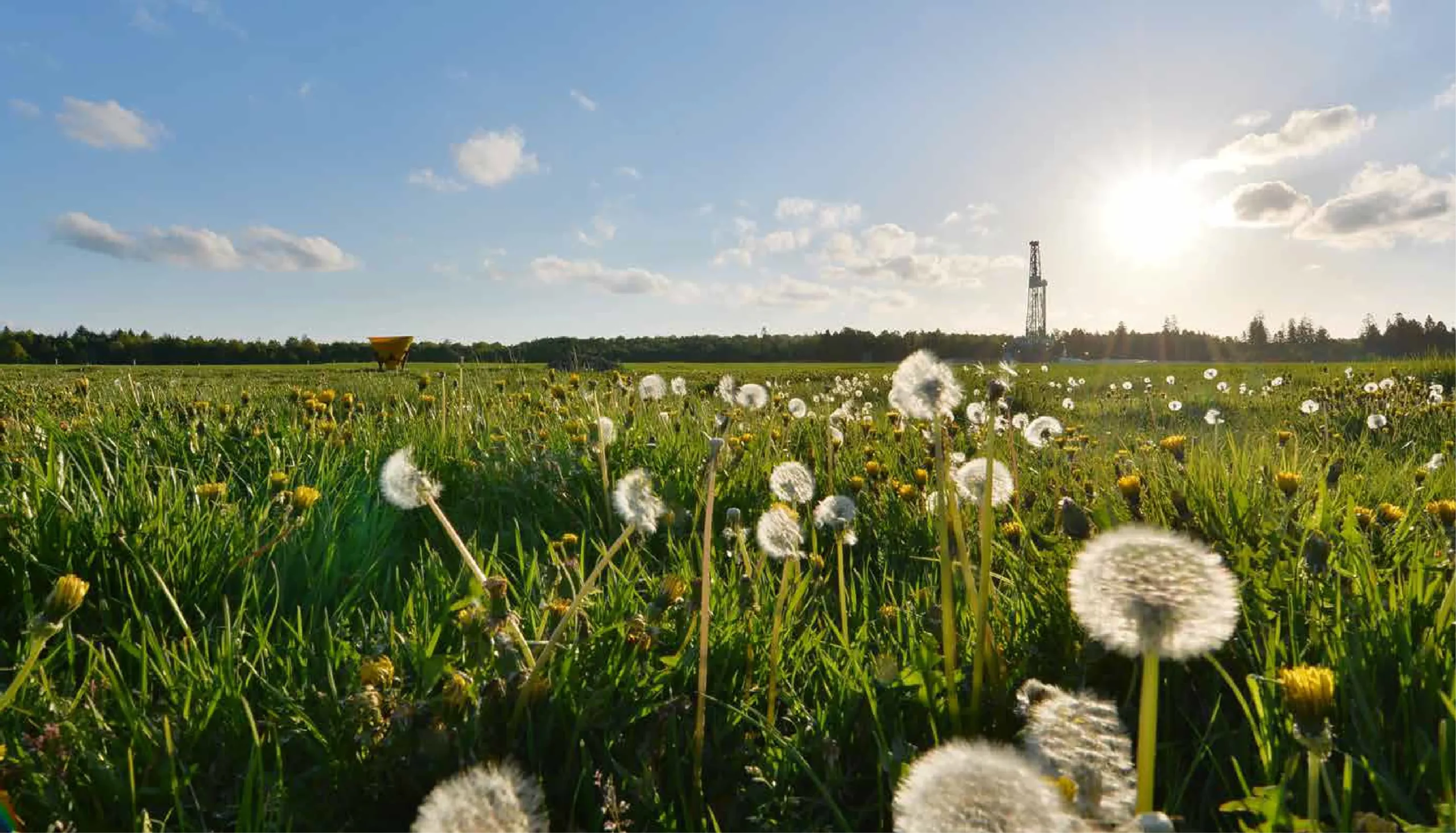7.5
million Mt eCO2 PGNiG Group’s direct GHG emissions (scope 1) in 2021 (7.0 million Mt eCO₂ in 2020; 7.18 Mt eCO₂ in 2019; 7.15 Mt eCO₂ in 2018)

We define natural capital as natural resources which are used by the Group or on which the Group exerts an impact.
Interaction between the PGNiG Group companies and the environment is inherent in the nature of their business. Considering the contemporary challenges to environmental protection, related to the depletion of natural resources and potential contamination of individual environmental components, we are taking measures to minimise the adverse environmental impact. The PGNiG Group recognises its impact on climate change and supports the fight against air pollution.
PGNiG also takes steps to enhance its energy efficiency, one example of these efforts being the implementation and maintenance of an energy management system.


+4.65%
increase in direct GHG emissions (scope 1) in 2021 compared with 2019, reflecting consistent expansion of the Group’s operations
+1.85%
reduction in the PGNiG Group’s total electricity consumption in 2021 compared with the 2019 level
~60%
increase in renewable electricity production at the PGNiG Group in 2021 relative to 2019
+58.97%
increase in the Group’s total water consumption in 2021 compared with 2018
+57.25%
increase in the total volume of wastewater generated by the PGNiG Group in 2021 relative to 2018
Green technologies and products are one of the key drivers of innovation across the Group.
In 2021, PGNiG continued work on projects looking to use hydrogen for power generation and automotive applications. The company is exploring the possibilities of storing and transmitting hydrogen through the gas network. A number of development projects are under way:
Human capital and natural capital interact on several levels:
As part of its production operations in Poland and abroad, the Company engages in social dialogue with local communities, experts and environmental organisations, as access to hydrocarbon deposits often depends on their acceptance. The PGNiG Group is firmly committed to building strong partnership-based relations with local communities, public authorities, suppliers and contractors in the pursuit of common goals.
PGNiG Group is an industrial and commodity holding company. PGNiG’s business comprises exploration for and production of natural gas and crude oil. Through its key companies, PGNiG is also active in the area of import, storage, sale and distribution of gas and liquid fuels, as well as heat and electricity generation and distribution. As a result, all areas of our business rely heavily on access to natural capital which determines the Group’s financial performance.
The core business of the Group is hydrocarbon exploration and production. To ensure uninterrupted supply of hydrocarbons to its retail and business clients, the Group invests in:
The Group acquires and sells commodities from its own sources, but also purchases commodities on the market:
Natural gas and crude oil prices determine the performance of individual segments to a large extent. To secure favourable gas prices in international transactions, the Group enters into short-, mid- and long-term contracts as a guarantee of uninterrupted and market priced supply of natural gas.
Environmental costs are an inherent part of the Group’s operations. Seeking to minimise its adverse environmental impacts, in 2021 the Group purchased emission allowances for 5,905 thousand Mg CO2 (representing the additional volume of allowances the PGNiG Group had to purchase given its 2021 allocation of 1,358.3 thousand Mg).
The Group also pays costs of certification, environmental software and mandatory environmental measurements.
Interactions between natural capital and manufacturing capital may be analysed on several levels.